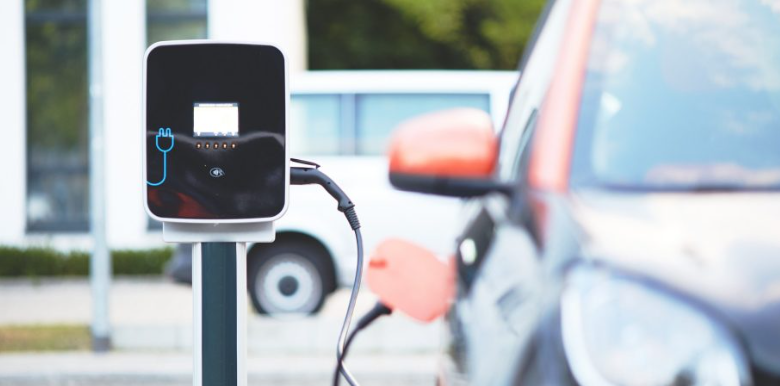Electric Versus Hydrogen Vehicles
At the end of 2023, the House of Commons passed the Zero Emission Vehicle (ZEV) Mandate into law, meaning that by 2030, 80 per cent of new cars and 70 per cent of new vans sold in Great Britain must be zero-emission, with a goal of achieving 100 per cent zero-emission vehicles by 2035. In this article, Simon Farnfield, event director at Advanced Engineering, explains why this requires a dual approach, with electric and hydrogen both serving distinct, yet significant, purposes across a variety of sectors and applications.
The electric versus hydrogen debate has been ongoing for some time. In fact, it is often oversimplified with suggestions that it’s a choice between one or the other, despite the reality being that both technologies are equally essential for a sustainable future, with each having its strengths and ideal applications.
EV’s role
Electrification is one of the key strategies for coping with increasing greenhouse gas (GHG) emissions and reducing reliance on fossil fuels. Electric vehicles (EVs), also known as battery electric vehicles (BEVs), are a viable option because they’re highly energy efficient and reduce local air and noise pollution, as well as GHG emissions.
However, the full environmental benefits of EVs can only be achieved when electricity is generated from emission-free sources, like renewables. Plus, there are limitations in electrification at the time of writing.
The Clean Air Task Force state that class 8 long-haul trucks, which require batteries of about 1-2MWh, can take several hours to charge completely, increasing trip durations by up to 35 per cent. For businesses reliant on transportation efficiency and timely deliveries, longer charging times reduces the overall operational efficiency, requiring additional vehicles to maintain service levels.
EVs are considered better suited for commercial use, due to their versatility and efficiency. They are ideal for short to medium-range transportation needs, particularly in urban settings where distances are relatively short and charging infrastructure is gradually being integrated, with legislation such as the 60 km rule being implemented across Europe.
In addition, when championed against hydrogen, one argument favouring EVs is the question of whether hydrogen is as environmentally friendly as its supporters like to claim. Although hydrogen vehicles emit no emissions during operation, the process of extracting and compressing hydrogen into fuel tanks incurs significant efficiency losses.
Hydrogen for heavy-duty
With that said, there are leading manufacturers, namely Toyota, Honda and Hyundai, who are prioritising fuel cell electric vehicles (FCEVs), which are powered by hydrogen. These manufacturers are expecting that hydrogen will play a prominent role in our energy needs across future decades.
Countering EVs’ argument against hydrogen’s environmental impact, there are greener practices of extraction being developed, such as obtaining hydrogen from biomass. This method involves using organic materials, such as agricultural waste, wood chips or other plant-based matter, to produce hydrogen.
What’s more, the Cleantech Group revealed that heavy-duty hydrogen trucks can be refuelled in just 10-15 minutes. FCEVs are, therefore, seen as more suitable for heavy-duty applications like long-haul trucks, buses and industrial machinery, and agricultural combine harvesters. All of these require high energy density and rapid refuelling for demanding operations, where extended range and quick turnaround times are critical.
EVs currently have the upper hand in terms of cost, mainly because of FCEVs not being manufactured at a large scale. Nevertheless, electricity is less expensive than hydrogen on a per-mile basis and EVs are currently more energy efficient and have fewer moving parts, resulting in lower maintenance costs.
Despite this, it’s believed that FCEVs will be cheaper to run than BEVs within a decade, as stated in a report from Ballard and Deloitte China.
Stay up to date
These insights prove that the debate between BEVs and FCEVs should not be seen as an either-or proposition, but rather as developing green options that will contribute to a sustainable future — just in different ways.
Source: https://memuknews.com/sustainability/ev-fuel-cells/electric-versus-hydrogen-vehicles/
Acres have a range of standard products but also support clients with custom machinery and medium-high volume products such as trolleys, stillages etc.
We have manufactured lots of different tables / workstations / workbenches for various industries.
We also manufacture access platforms, jigs and fixtures and many other types of production support solutions / products.
Talk to us today about your requirements: [email protected] / 01332695240 / Contact Us Form
Click on the icon to check out our social media! Please follow, like and share!
Want to know more about Acres Engineering?
We are based in the UK from our Headquarters in Derbyshire, England and have a European office in Malaga, Spain within the EU.
Find out more about where we have been and what we have been up to by checking out our latest blog posts.
Take a look at how we support of the Armed Forces, STEM/Schools and Charities.
As a world leader in our field, we offer a range of information guides sharing best practice with our clients.
We make it easy to engage with us, we are approved on: EcoVadis (external) / JOSCAR (external) / AVETTA (external) / COUPA (external) / SAP ARIBA (external) / DEEPSTREAM (external) ….you can download our BSI / Insurance certificates here.




![]()
![]()
![]()
Source: MEMUKNews.com






